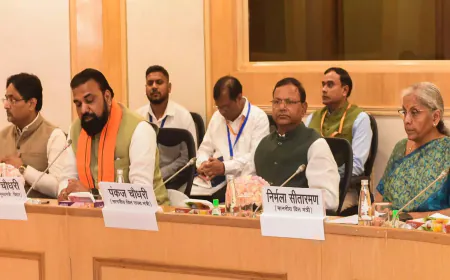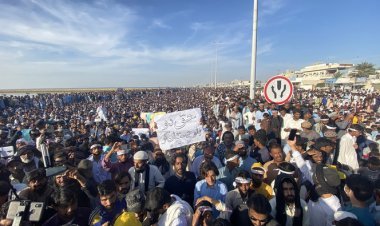India's response to CAA in UN: It gives citizenship to Indians, does not take away citizenship from them
India's response to CAA in UN: It gives citizenship to Indians, does not take away citizenship from them

The issue of the Citizenship Amendment Act (CAA) and hate speech was raised in the United Nations Human Rights Council (UNHRC). Responding to this, Solicitor General Tushar Mehta said that CAA is a law that gives citizenship to the suffering minorities of neighbouring countries.
In fact, those opposing the CAA say that it can target Muslims living in the country. At the same time, the Solicitor General, while relying on the issue of Hate Speech and Freedom of Expression, said – The Constitution of India gives the fundamental right to freedom of expression to every citizen.
In the ongoing UNHRC Universal Periodic Review in Geneva, many member countries expressed concern about the issue of CAA in India. Regarding this, Tushar Mehta said – CAA law is exactly the law that prepares the criteria for citizenship in different countries.
The CAA law helps people of Hindu, Sikh, Buddhist, Parsi, Jain and Christian faiths from India's neighbouring countries Afghanistan, Bangladesh and Pakistan get Indian citizenship on the basis of religious persecution. This does not take away the citizenship of any citizen. Nor is there any change in the procedure for granting Indian citizenship to any country.
Solicitor General Tushar Mehta said- Freedom of expression is there in India but there are some laws related to it which must be followed. Independence is so long as the sovereignty and integrity of India are not under threat. Appropriate restrictions help regulate hate speech and freedom of expression.
When the CAA law was enacted in the country two years ago, it was opposed across the country. Delhi's Shaheen Bagh area was the focal point of the movement against this law. The law made the rules of citizenship law easier for migrants of Hindu, Sikh, Buddhist, Jain, Parsi and Christian religions from Afghanistan, Bangladesh and Pakistan. Earlier it was necessary to stay in India for 11 years for citizenship, this time was reduced from 1 to 6 years.
The Citizenship Amendment Bill 2016 (CAA) was introduced in 2016. In this, some changes had to be made in the 1955 Act. These changes were to give citizenship to non-Muslim refugees from India's three Muslim neighbours Bangladesh, Pakistan and Afghanistan. It was referred to the Joint Parliamentary Committee on 12 August 2016. The committee submitted its report on 7 January 2019.
For Latest News update Subscribe to Sangri Today's Broadcast channels on Google News | Telegram | WhatsApp





































.jpeg)
































































































